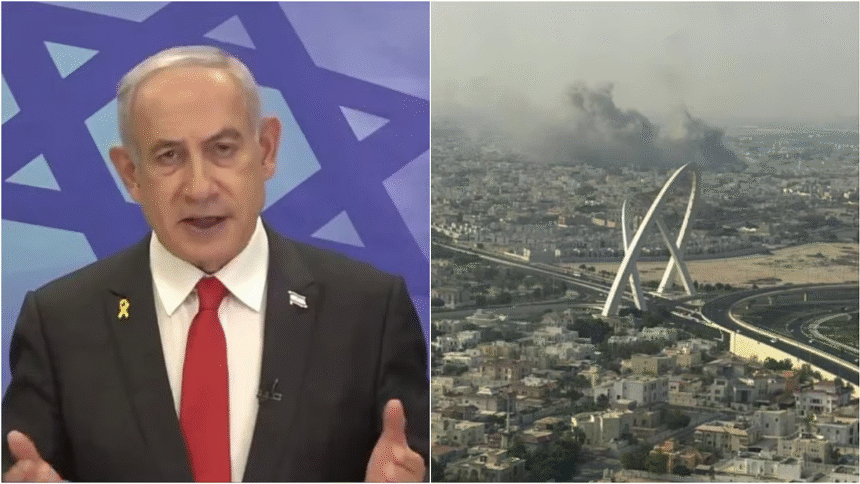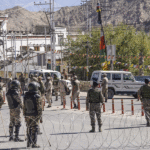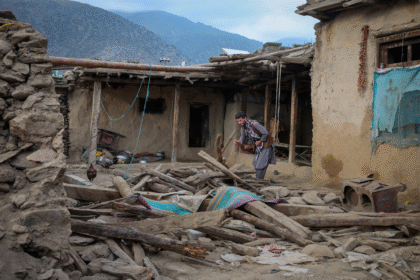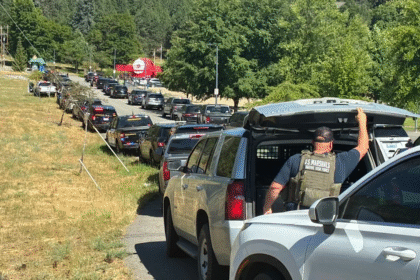Israel PM Netanyahu Issues Rare Apology to Qatari PM Over Deadly Doha Airstrike After 1 Urgent White House Call
The apology was made during a phone call from the White House on Monday, after Netanyahu met with US President Donald Trump
Israeli Prime Minister Benjamin Netanyahu apologised to Qatari Prime Minister Mohammed bin Abdulrahman Al Thani over the Israeli airstrike in Doha, which killed five people, including a Qatari security officer. The apology was made during a phone call from the White House on Monday, after Netanyahu met with US President Donald Trump.
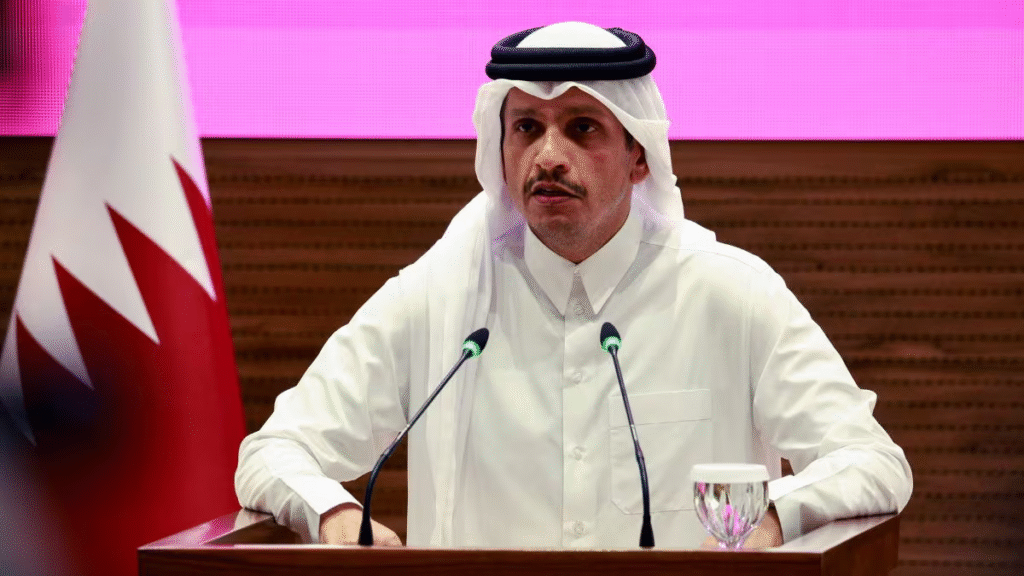
The strike had previously drawn strong condemnation from Qatar, with a Foreign Ministry spokesperson calling it a violation of international law. Hamas also accused Israel and the US of responsibility, warning that the assassination attempt would not affect its negotiating stance.
The Doha operation earlier this month resulted in five deaths, including the son of Hamas leader Khalil al-Hayya and his aide, Jihad Labad. According to sources, Netanyahu expressed regret for violating Qatari sovereignty and for the death of the Qatari officer.
Netanyahu had earlier demanded that Qatar either expel Hamas officials or “bring them to justice,” prompting Doha to call his comments reckless.
The apology comes amid ongoing US efforts to finalise a Gaza peace deal and secure the release of hostages held by Hamas. A Qatari technical team was present at the White House during Netanyahu’s visit.
While the Trump administration confirmed that Israel had informed the US about the planned strike, Qatar denied receiving prior warning. President Trump clarified that the decision to carry out the strike was made by Netanyahu and not by the US.
Doha was rocked after multiple explosions hit the city on September 9. The city reportedly witnessed black smoke allegedly after around ten blasts occurred in the Katara District. Israel Defence Forces (IDF) took responsibility of the attack and claimed that they had carried out the precision strikes against Hamas leadership.
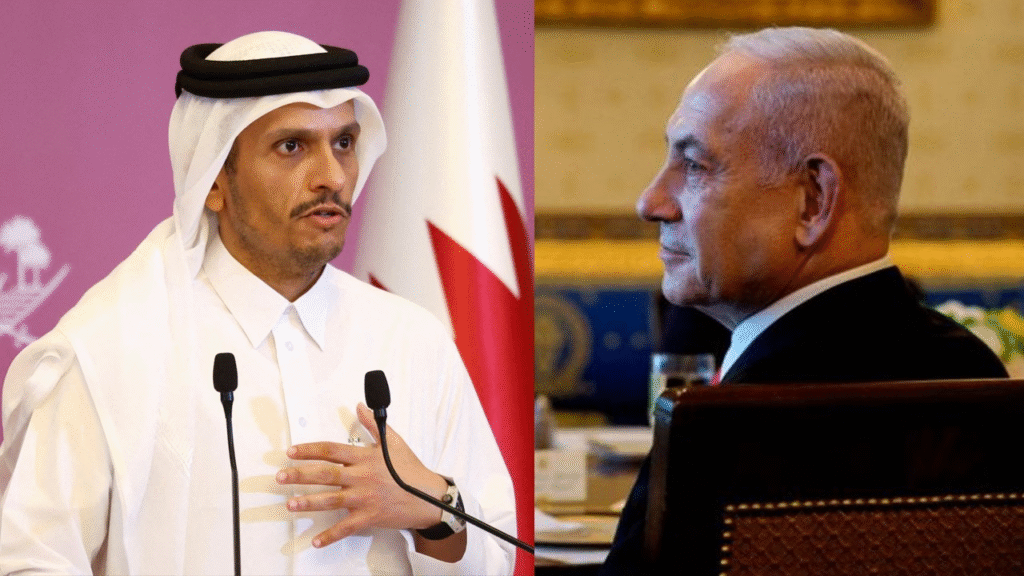
In a highly unusual diplomatic move, Israeli Prime Minister Benjamin Netanyahu has reportedly apologized to Qatari Prime Minister Sheikh Mohammed bin Abdulrahman Al-Thani following a deadly airstrike in Doha that killed multiple civilians. The rare gesture of contrition came only after a direct and urgent phone call from the White House, underscoring the mounting pressure on Israel amid escalating regional tensions.
The incident has sent shockwaves across the Middle East, testing fragile diplomatic ties and raising serious questions about accountability, proportionality, and the future of mediation efforts between Israel and its Arab neighbors.
According to preliminary reports, Israeli fighter jets conducted a precision strike late last week on what the Israel Defense Forces (IDF) claimed was a Hamas-linked facility operating out of Doha. While Israel initially defended the attack as a “necessary counterterrorism measure,” the strike tragically resulted in the deaths of at least 19 civilians, including women and children, sparking international outrage.
Eyewitnesses in Doha described scenes of chaos as emergency services struggled to rescue survivors from the rubble. Hospitals in Qatar confirmed treating dozens of injured individuals, many in critical condition. The Qatari government condemned the attack as a “flagrant violation of sovereignty and international law.”
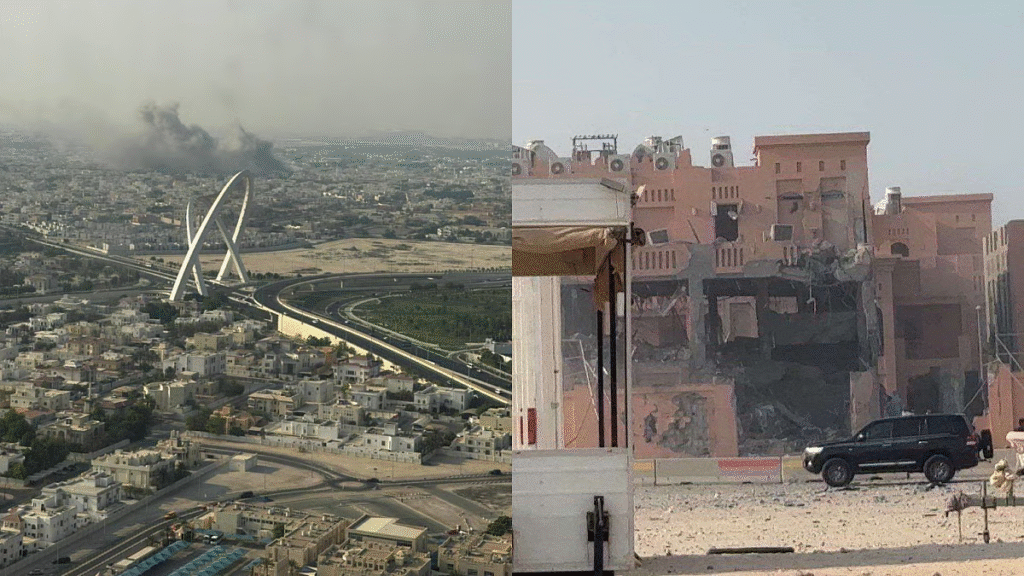
Sources familiar with the situation revealed that U.S. President Joe Biden’s administration acted swiftly after learning of the incident. Washington, which has long viewed Qatar as a crucial partner in regional diplomacy and counterterrorism financing oversight, was alarmed by the possibility of the strike derailing ongoing U.S.-led efforts to stabilize the region.
Secretary of State Antony Blinken reportedly conveyed Washington’s disapproval in firm terms, stressing the “unacceptable civilian toll” and the “need for immediate damage control.” President Biden himself allegedly placed a direct call to Netanyahu, warning that the incident could jeopardize Israel’s standing with Gulf nations and undermine fragile peace initiatives.
It was only after this intervention, officials say, that Netanyahu agreed to extend an official apology to the Qatari leadership.
In a phone call facilitated through diplomatic channels, Netanyahu conveyed “deep regret” to Sheikh Mohammed bin Abdulrahman Al-Thani. According to Israeli media leaks, the prime minister acknowledged the “tragic loss of innocent lives” and offered assurances that the matter would be investigated at the highest levels.
The Qatari side, while accepting the apology, emphasized the need for accountability and meaningful steps to prevent similar incidents. A senior Qatari official told reporters:
“An apology is not enough. What we expect is transparency, accountability, and an end to the reckless use of force that disregards human life.”
Qatar’s importance in Middle Eastern diplomacy cannot be overstated. Home to the largest U.S. military base in the region, Al Udeid Air Base, Qatar has often served as a mediator in conflicts involving Israel, Hamas, and other Palestinian factions. Its financial clout and diplomatic neutrality have made it a pivotal player in ceasefire negotiations.
By striking inside Doha, even unintentionally, Israel risked alienating one of the few Arab states willing to maintain open lines of communication with Tel Aviv. Analysts believe that Netanyahu’s apology reflects a recognition of Qatar’s indispensable role and the risks of complete diplomatic isolation.
The UN Secretary-General António Guterres condemned the attack, calling it “an egregious violation of international norms” and demanding an impartial investigation into the civilian deaths.
The Arab League convened an emergency session, with member states unanimously denouncing the strike and urging collective action to “hold Israel accountable.”
EU foreign policy chief Josep Borrell urged restraint, warning that the incident could “further inflame tensions at a time when de-escalation is urgently needed.”
The U.S. administration balanced its criticism with reaffirmed support for Israel’s right to self-defense, but made it clear that civilian casualties “cross red lines” in Washington’s view.
Inside Israel, Netanyahu is facing a storm of political challenges. Opposition leaders accused him of recklessness and poor judgment, arguing that alienating Qatar jeopardizes Israel’s diplomatic and security interests. Families of hostages held in Gaza also expressed frustration, fearing that the strike could collapse mediation channels critical to securing prisoner exchanges.
Netanyahu’s right-wing allies, however, defended the strike, framing it as a necessary demonstration of strength against Hamas and its alleged backers. This deepening divide reflects the prime minister’s precarious balancing act between military hardliners and international pressure.
While Netanyahu’s apology may temporarily de-escalate tensions, the long-term impact remains uncertain. Qatar is unlikely to sever its mediation role but may become more cautious in engaging with Israeli officials.
Regional experts suggest that Israel may have to make additional concessions, such as humanitarian gestures or confidence-building measures, to repair its image in the Gulf. Failure to do so could push Qatar closer to Iran or Turkey, reshaping the regional balance of power.


